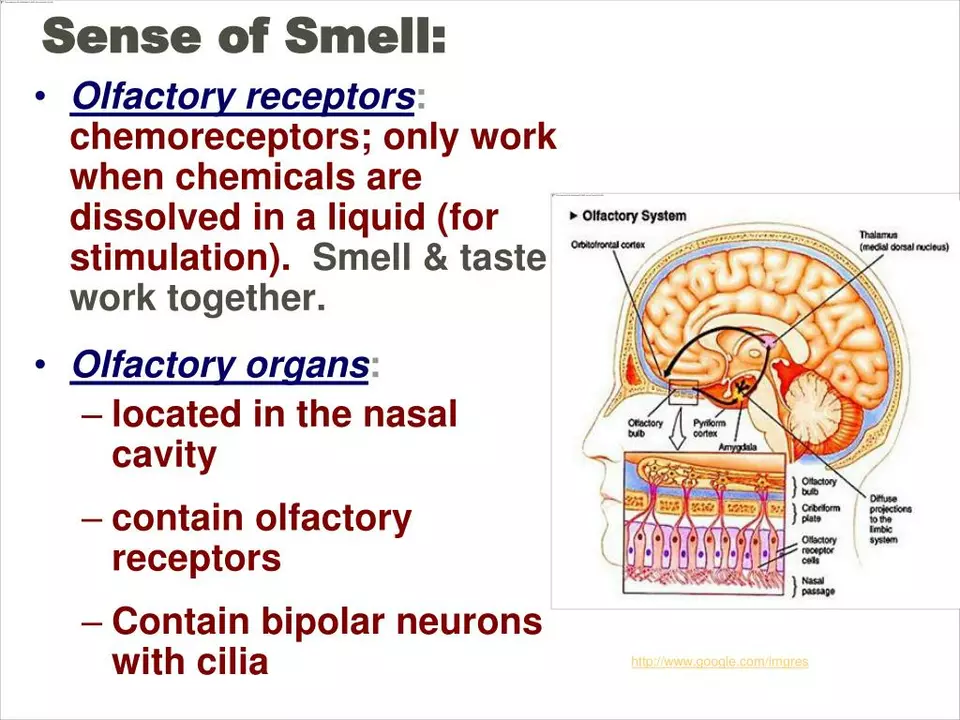Olfactory System: How Smell Works and What to Do When It Fails
Smell is a quick and powerful sense. A single whiff can bring back a memory or warn you of danger. When your sense of smell changes, it affects food, mood, and safety. You can fix many smell problems if you know what to do.
Smell problems come in different flavors.
Inside your nose a thin layer of cells called the olfactory epithelium holds smell receptors. Tiny molecules from food, flowers, or smoke land there and bind to receptors. Those receptors send electrical signals to the olfactory bulb at the base of the brain. From there the signal goes to the olfactory cortex and limbic system — that’s why smells feel emotional.
Anosmia means no smell. Hyposmia is reduced smell. Parosmia makes things smell wrong or distorted. Phantosmia is smelling things that aren’t there. Common causes include viral infections and colds, nasal congestion or polyps, allergies, head injuries, normal aging, and some medicines. In some cases, progressive smell loss can be an early sign of Parkinson’s or Alzheimer’s disease.
When should you see a doctor?
If you suddenly lose smell, if a head injury caused the change, or if smell problems last more than two weeks, see an ENT (ear, nose, throat) specialist. Also visit a doctor if loss of smell makes eating difficult or puts you at risk (for example you can’t smell gas or smoke).
Doctors will ask about recent illness and test your nose. Simple at-home checks can help — try identifying familiar scents. In the clinic there are smell identification tests (like scratch-and-sniff lists), nasal endoscopy to look for polyps, and imaging when needed.
Treatment depends on the cause. If congestion or polyps block airflow, saline rinses and nasal steroid sprays often help. Allergies should be treated with antihistamines or allergy shots when appropriate. If medications are to blame, your doctor may switch drugs. For some cases of nerve damage, there’s no quick fix but smell training can improve recovery for many people. Smell training means sniffing a set of familiar scents (often rose, lemon, eucalyptus, and clove) twice daily for several months. It’s cheap, low risk, and backed by clinical studies showing real improvement in many patients.
Protect your nose and daily life with simple habits. Quit smoking, manage chronic sinus or allergy problems, and keep your home ventilated. Label spoiled food and install working gas and smoke detectors — don’t rely on smell alone.
If you’re worried about losing your sense of smell, don’t wait. Start basic care at home, try smell training, and book a visit with an ENT if things don’t improve. Smell often returns with the right steps, and early action gives you the best chance.
A practical plan: sniff each scent for 10–15 seconds, rest, then move to the next. Do four scents twice daily and keep a log of sensations. No change after three months? Ask your doctor about further tests. Small steps can lead to big returns.
Sneezing and your sense of smell: what's the connection?
In today's blog post, we're exploring the fascinating connection between sneezing and our sense of smell. As it turns out, sneezing is our body's natural response to irritants in our nasal passage, which helps to clear out any unwanted particles and maintain our sense of smell. When we sneeze, our nose sends a signal to our brain, which then triggers the sneeze reflex. This amazing process not only helps to protect our sense of smell, but it also plays a crucial role in keeping our respiratory system healthy. So, next time you sneeze, remember that it's your body's way of keeping your sense of smell and respiratory system in top-notch condition!
Read More
